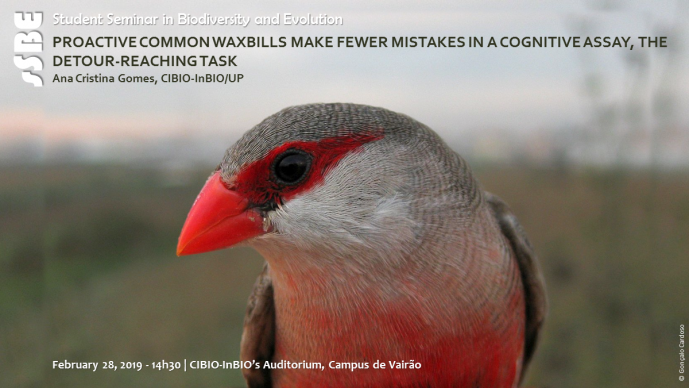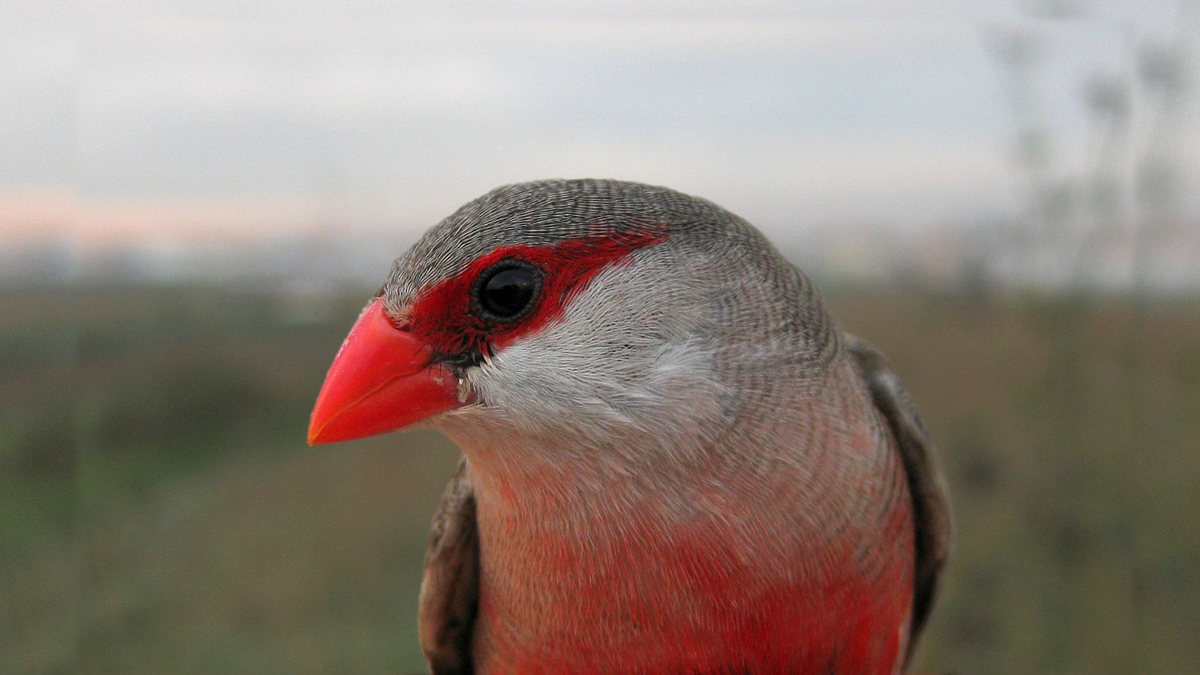PROACTIVE COMMON WAXBILLS MAKE FEWER MISTAKES IN A COGNITIVE ASSAY, THE DETOUR-REACHING TASK

STUDENT SEMINAR IN BIODIVERSITY AND EVOLUTION

Reactive individuals explore and make decisions more slowly than proactive individuals and pay more attention to external cues. Reactive personality types are therefore predicted to make fewer mistakes in cognitive tasks, especially in tests of inhibitory control that require individuals to adjust previously established behavioural routines. However, empirical evidence for this prediction is mixed, and work relating cognition to a broader set of phenotypic traits has been called for. Here, using the common waxbill (Estrilda astrild), we relate detour-reaching performance to different personality traits, as well as to breath rate, body size and mass. Contrary to what we predicted, proactive individuals made fewer mistakes in the detour-reaching task. Proactive and reactive individuals did not differ in their learning trajectories across cognitive test trials. Furthermore, body size or mass, and breath rate were not significantly associated with personality traits or detour-reaching performance. This work adds to a growing number of studies contributing conflicting findings on how animal personality relates to cognitive performance, which appears to require novel theory and more nuanced predictions.
In this Seminar, I will also briefly present my PhD project. Using the common waxbill, and data collected from year-round monitoring based on Pit-tags, we will test:
(i) how both natural and experimentally-created differences in ornamentation, personality, cognition and familiarity affect social relationships outside the breeding season.
(ii) whether any of these traits influence mate choice in the breeding season directly, or indirectly, via their previous effects on non-sexual social associations.
This long-term study of unprecedented detail on the social structure and phenotypes of a gregarious avian species will advance our understanding of animal social behaviour and of the phenotypes that mediate it. Specifically, it will clarify how non-sexual and sexual social associations interact to shape social structure and sexual selection in gregarious animals.
Ana Cristina Gomes holds a MSc in Biodiversity, Genetics and Evolution, from the Faculty of Sciences of the University of Porto. Ana is currently enrolled in the second year of the BIODIV PhD Program, working under the supervision of Dr. Gonçalo Cardoso (CIBIO-InBIO) and Dr. Neeltje Boogert (University of Exeter, UK), with a PhD project entitled ‘Phenotypic influences on social structure and mate choice’. Ana is also part of the BE group at CIBIO-InBIO.
Image credits: Gonçalo Cardoso